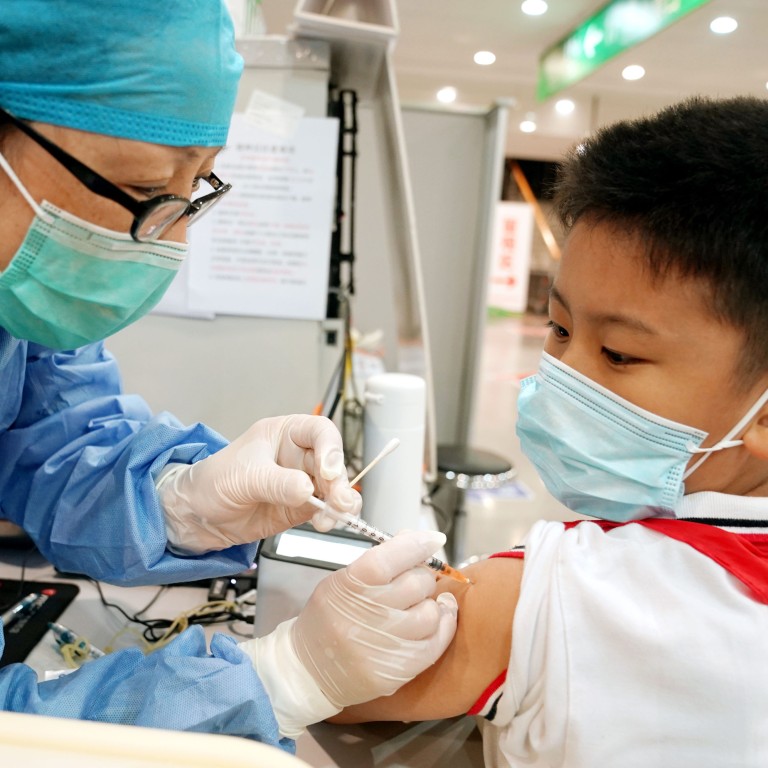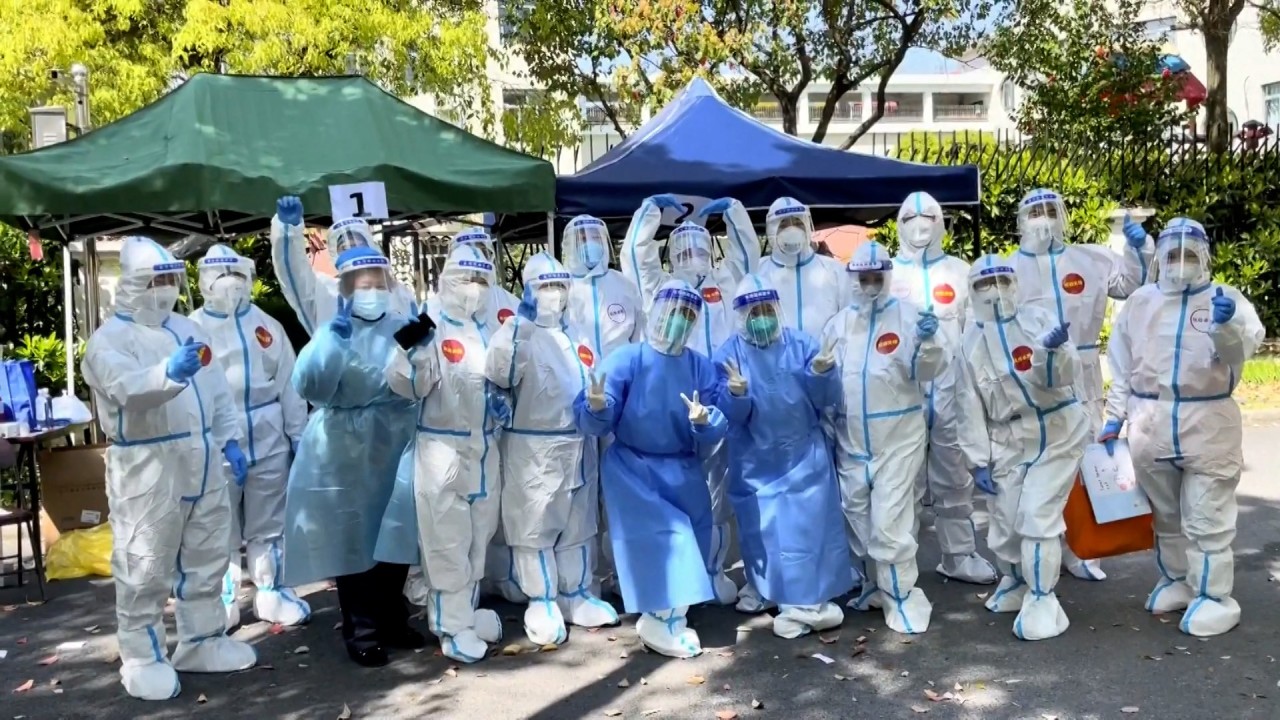
China’s vaccine makers get stock market jolt as rivalry, price cuts undermine earnings outlook
- Competition among vaccine makers and state-driven price cuts are prodding analysts to trim their earnings forecasts
- Stocks have languished since a bright 55 per cent rally during the first phase of national vaccination programme early last year
Chinese vaccine makers have gone flat in the stock market this year, a far cry from the euphoria that greeted them when their shots began to power national vaccination drive last year.
Since a 55 per cent stock breakout in the first half of 2021, China’s four key players – Sinopharm Group, Shanghai Fosun Pharmaceutical, CanSino Biologics and Chongqing Zhifei Biological Products – have limped. This year’s retreat has made investors 85.7 billion yuan (US$13.1 billion) poorer on paper.
“Competition is getting more intense and prices are expected to decline,” said Kay Mai, an analyst at Guotai Junan Securities in Shanghai. “There are uncertain factors as to whether other new vaccines can catch up, but their market share is definitely increasing.”
China has approved five vaccines, with inactivated ones by Sinopharm and Sinovac dominating the options over the past year. As the Omicron requires more effective shots, CanSino’s viral vector vaccine and Zhifei’s recombinant protein vaccine have gained wider attention.
Covid-19 panic buying hits Beijing as biggest district begins mass tests
China’s speedy rate of basic vaccination means the curve could flatten going forward, according to the Bank of China. The sector’s earnings multiple has compressed to pre-epidemic levels, with vaccine makers vying for a smaller market of “booster jabs,” its analyst Deng Zhouyu said in the report this month.
Sinopharm and Sinovac have supplied about six billion doses of vaccines globally, or more than half of the global shots, according to the latest statistics. Both are part of COVAX, an international initiative aimed at distributing Covid-19 vaccines.
Sinopharm’s earnings rose 24 per cent to 3.6 billion yuan in the first half of 2021 from a year earlier, while Sinovac turned around with a US$5.1 billion net profit from a US$12.6 million loss over the same corresponding period.
Sinopharm has suffered a 13 per cent drop in its stock price in Shanghai this year, while Nasdaq-listed Sinovac has been suspended since February 2019 due to an ownership dispute. CanSino has lost half of its market value in Hong Kong, while Chongqing Zhifei slumped 24 per cent in Shenzhen.
Underlining the stiffer competition, inactivated vaccines have been found wanting in protecting against Omicron as a fourth booster jab, while recombinant spike protein or mRNA vaccines would be good alternatives, according to a study published by Sun Yat-sen University.
Meanwhile, Beijing has been taking measures to lower vaccine prices, spelling troubles for the industry’s profit margins. Through negotiations with domestic vaccine makers, the National Healthcare Security Administration has lowered prices from as much as 90 yuan per dose to 20 yuan, an official said earlier this month.
Guotai Junan has trimmed its earnings forecast for Sinopharm by 3.6 per cent for this year while TF securities cut its forecast for CanSino’s revenue to 3.1 billion from 9.1 billion yuan, citing a slump in vaccine prices, among others.
“Additional challenges to the industry come from rising oil prices and the Omicron-dominated Covid-19 outbreaks in many cities across China,” its Guotai Junan analyst Mai added. “However, monetary easing and payment settlement policy in 2022 are expected to help reduce the financial pressure.”


